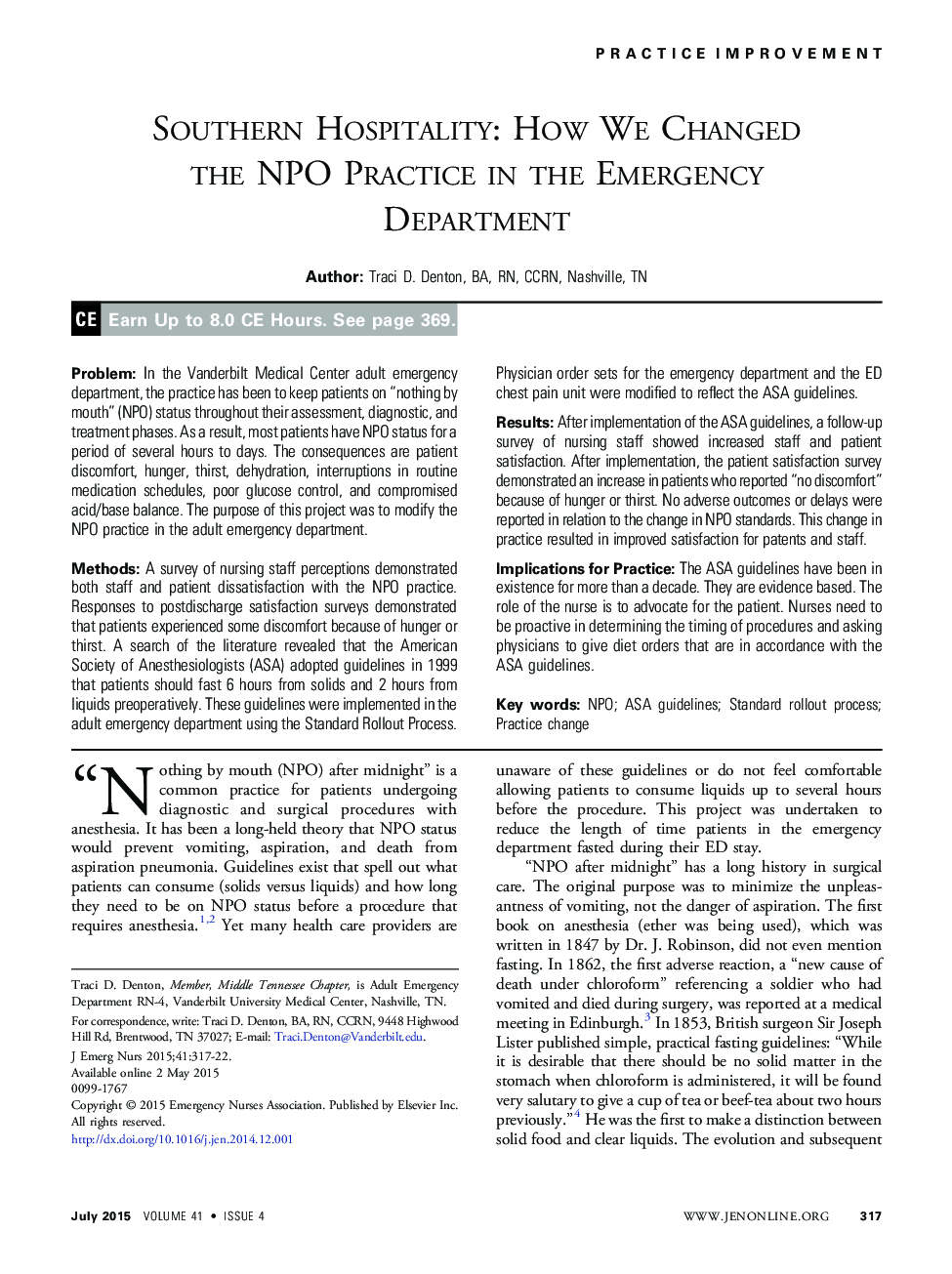| Article ID | Journal | Published Year | Pages | File Type |
|---|---|---|---|---|
| 2608384 | Journal of Emergency Nursing | 2015 | 6 Pages |
ProblemIn the Vanderbilt Medical Center adult emergency department, the practice has been to keep patients on “nothing by mouth” (NPO) status throughout their assessment, diagnostic, and treatment phases. As a result, most patients have NPO status for a period of several hours to days. The consequences are patient discomfort, hunger, thirst, dehydration, interruptions in routine medication schedules, poor glucose control, and compromised acid/base balance. The purpose of this project was to modify the NPO practice in the adult emergency department.MethodsA survey of nursing staff perceptions demonstrated both staff and patient dissatisfaction with the NPO practice. Responses to postdischarge satisfaction surveys demonstrated that patients experienced some discomfort because of hunger or thirst. A search of the literature revealed that the American Society of Anesthesiologists (ASA) adopted guidelines in 1999 that patients should fast 6 hours from solids and 2 hours from liquids preoperatively. These guidelines were implemented in the adult emergency department using the Standard Rollout Process. Physician order sets for the emergency department and the ED chest pain unit were modified to reflect the ASA guidelines.ResultsAfter implementation of the ASA guidelines, a follow-up survey of nursing staff showed increased staff and patient satisfaction. After implementation, the patient satisfaction survey demonstrated an increase in patients who reported “no discomfort” because of hunger or thirst. No adverse outcomes or delays were reported in relation to the change in NPO standards. This change in practice resulted in improved satisfaction for patents and staff.Implications for PracticeThe ASA guidelines have been in existence for more than a decade. They are evidence based. The role of the nurse is to advocate for the patient. Nurses need to be proactive in determining the timing of procedures and asking physicians to give diet orders that are in accordance with the ASA guidelines.
